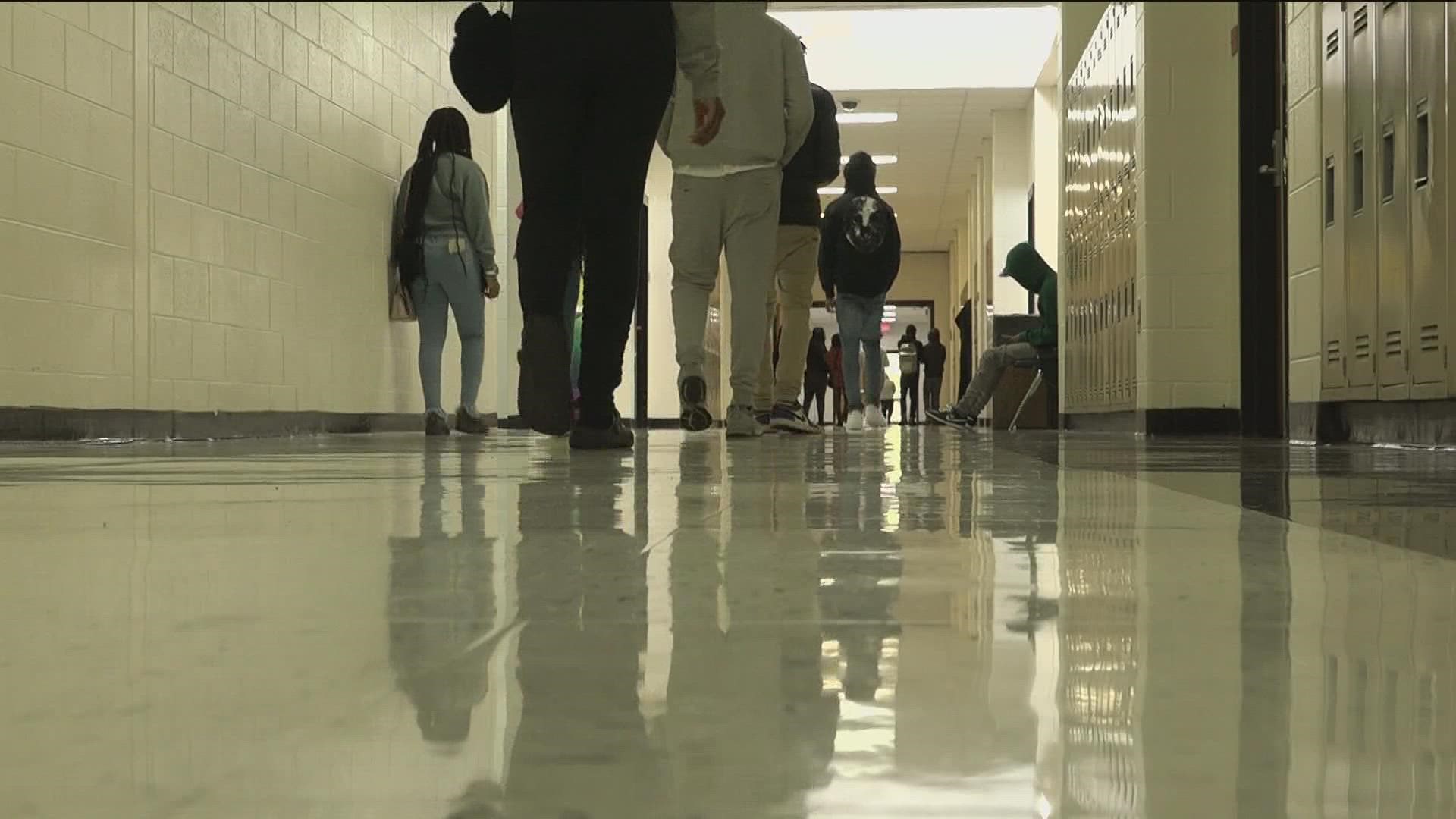ATLANTA — Educators in Fulton County are encouraging students to open up about the lingering mental health impacts of the pandemic.
Georgia is receiving $4.2 billion in federal educational emergency relief funds. Educators across the state are using that money to help students play catch up on progress lost during the pandemic.
Many districts continue to wrestle with long-term mental health issues brought on my the back-and-forth of remote and in-person learning.
“Some children fell into depression and stuff,” Tri-Cities High School 9th grader Liberty Clarke said.
Recent studies show some Georgia students lost as much as a full school year of progress due to disruptions caused by COVID-19.
Students like Tri-Cities 9th grader Gabrielle Strother say they’ve struggled to adjust now that they’re back learning in-person.
“The first week of school we were given so much work, it felt like we were getting work back-to-back-to-back where during the pandemic it was one assignment each week,” she said.
At Tri-Cities, students are taking part in an exercise called Restorative Circles. Carmena Woods oversees a gathering of students to discuss conflicts. It’s a place where they can clear the air.
“Giving them a safe space to speak allows them the opportunity to get a lot of stuff off of their chest,” Woods said. “We have to provide these opportunities.”
Fulton County is one of several school systems in Georgia trying the restorative approach that includes counseling. Woods says she’s seen an improvement in mental health and academic achievement.
“We encourage them to have at least one adult they can turn to talk and confide in,” Woods said. “If we don’t it’s an internal explosion waiting to happen.”
Experts say educators will have to address both academic and mental health issues in order to get student achievement back on track.

